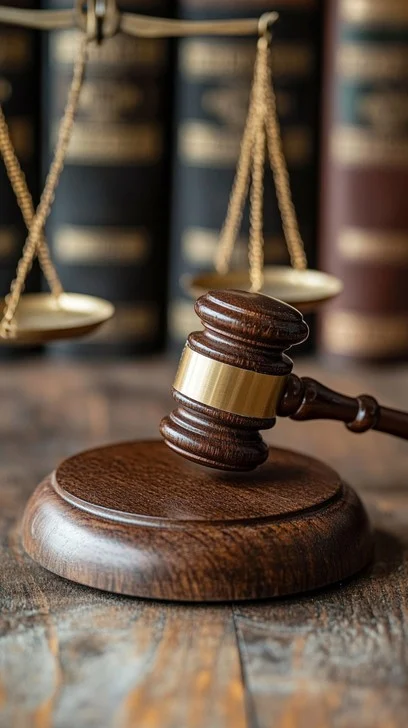Constitutional law plays a crucial role in protecting the rights and freedoms of citizens. It establishes the fundamental principles that shape a nation, detailing the legal rights and responsibilities of individuals and the limits of government power. The role of constitutional law in safeguarding citizen rights is foundational to ensuring justice, equality, and liberty in a society. Whether you’re a criminal lawyer defending individual rights or a citizen seeking fair treatment, constitutional law remains vital to protecting freedom. In this article, we’ll explore the key aspects of constitutional law, how it defends citizen rights, and why it is vital to democracy.
What is Constitutional Law?
Constitutional law is a branch of law that focuses on interpreting and applying a country’s constitution. A constitution serves as the highest law of the land, outlining the structure of government, defining its powers, and protecting individual rights. Constitutional law guides how laws are created, enforced, and evaluated, ensuring they align with constitutional principles.
Key Principles of Constitutional Law
Several core principles define constitutional law, each essential to safeguarding citizen rights:
- Separation of Powers
- The separation of powers divides government authority among different branches (executive, legislative, and judicial), ensuring no single branch holds excessive power. This system prevents abuses and promotes balanced governance.
- Rule of Law
- The rule of law states that everyone, including government officials, is subject to the law. This principle guarantees that all individuals are treated equally and that laws are applied fairly.
- Checks and Balances
- Checks and balances allow each branch of government to limit the others’ powers. This mechanism keeps government actions within legal boundaries and prevents overreach.
- Individual Rights
- Constitutional law emphasizes individual rights, such as freedom of speech, religion, and privacy, ensuring citizens have fundamental protections from governmental interference.
The Role of Constitutional Law in Safeguarding Citizen Rights
Constitutional law serves as a protector of citizen rights, offering legal mechanisms to uphold justice and prevent abuses of power. Through judicial interpretation, courts enforce the constitution and protect individuals from discrimination, censorship, and other violations. The role of constitutional law in safeguarding citizen rights is evident in landmark rulings that set precedents and expand civil liberties.
How Constitutional Law Protects Freedoms
- Freedom of Speech and Expression
- Constitutional law ensures that citizens have the right to express themselves without fear of censorship. Freedom of speech is vital for promoting ideas, debate, and personal autonomy.
- Right to Privacy
- The right to privacy, though not always explicitly stated, is protected under constitutional law, preventing undue interference in individuals’ personal lives. Privacy rights apply to personal data, homes, and communications.
- Protection Against Unlawful Detention
- Constitutional protections prevent unlawful detention and provide citizens with the right to due process, which includes fair treatment in legal proceedings.
- Equal Protection Under the Law
- The constitution mandates equal protection, ensuring that laws apply fairly to all citizens, regardless of race, gender, or religion. This protection is vital for addressing discrimination and fostering inclusivity.
Landmark Cases that Shaped Constitutional Rights
Certain landmark cases demonstrate the role of constitutional law in safeguarding citizen rights. These cases set important precedents:
- Brown v. Board of Education: This landmark ruling declared racial segregation in public schools unconstitutional, expanding civil rights and promoting equality.
- Roe v. Wade: This case reinforced privacy rights, particularly concerning reproductive choices, establishing a significant precedent for personal autonomy.
- Miranda v. Arizona: This case secured the rights of individuals under police custody, requiring law enforcement to inform suspects of their rights, including the right to remain silent.
Each of these cases underscores how constitutional law evolves to protect citizens based on changing social values and interpretations.
The Importance of Judicial Review in Constitutional Law
Judicial review allows courts to assess whether laws align with the constitution. Through this process, courts can invalidate laws that violate constitutional principles, ensuring that legislation respects citizen rights. Judicial review upholds the role of constitutional law in safeguarding citizen rights by providing a check on legislative and executive actions.
The Impact of Constitutional Amendments on Citizen Rights
Amendments to the constitution play a crucial role in extending and clarifying citizen rights. For instance, amendments related to voting rights and equal protection have expanded democratic participation and anti-discrimination measures. Constitutional amendments enable the law to evolve alongside societal progress, strengthening its role in protecting citizens.
Challenges in Constitutional Law and Citizen Rights
While constitutional law is essential, it faces challenges in interpretation and application:
- Ambiguity in Language: The wording of constitutional texts can be vague, leading to differing interpretations.
- Changing Social Values: Societal views evolve, and constitutional law must adapt to protect modern rights and freedoms.
- Balancing Security and Privacy: Laws aiming to ensure security can sometimes infringe upon privacy rights, creating a need for balanced legal measures.
These challenges highlight the dynamic nature of constitutional law and the importance of adapting it to contemporary issues.
Why Constitutional Law is Vital for Democracy
Constitutional law is essential for democracy because it ensures that government actions are accountable, transparent, and respectful of citizen rights. By setting clear limitations on government power and upholding individual freedoms, constitutional law builds trust between citizens and their leaders. Its role in safeguarding citizen rights is fundamental to maintaining a fair, just, and inclusive society.
Conclusion
The role of constitutional law in safeguarding citizen rights is indispensable to modern society. Through principles like the rule of law, separation of powers, and individual freedoms, constitutional law provides a framework that protects citizens from abuses and promotes justice. As society evolves, constitutional law continues to be a cornerstone of democracy, adapting to ensure that every individual’s rights are respected and upheld.

